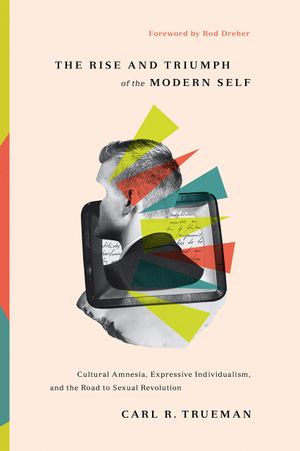Author: CARL R. TRUEMAN
Publisher: Crossway Books
ISBN: 978-1-43355-633-3
Were you as baffled as I was by the claim that Ashers Bakery had made their customer ‘feel unworthy, a lesser person’ by declining to supply him a cake with a pro-gay marriage slogan? Do you wonder why members of the ‘LGBTQ+ community’ continually give prominence to their sexual identity? Are you discouraged by the stance adopted by the mainstream media, politicians, and education and medical professionals? If you are, this book is a ‘must read’!
Carl Trueman tells us how, as a society, we have arrived at the place where the statement ‘I am a woman trapped in a man’s body’ no longer causes the sort of astonishment and derision it would have aroused in his grandfather.
He charts the route whereby we came here, nudged along by philosophers (notably Rousseau), poets, psychoanalysts (Freud in particular) and a medley of others, especially Darwin and Marx. Others have built on their foundations, and hence we have no-fault divorce, abortion right up to birth, and no logical reason to describe anything, including paedophilia, as wrong for everybody. We only have emotion/emotivism.
What’s next? Something obviously must be – hence the open-ended ‘+’ that follows ‘LGBTQ’. Hostility to everything that transmits notions of right and wrong from one generation to another (such as family, religion, and church) is well and truly baked in already. This book is not short of possible examples.
How do we respond? The Rise and Triumph of the Modern Self is not primarily about that, but something must be said, even in an introductory treatise like this. Two powerful points are made. First, we should not give validity to the terminology and categories of the ‘woke’ movement by adopting them ourselves. (That includes putting ‘phobia’ on the end of ‘Christian’, in this reviewer’s opinion.) Second, churches must work hard at their own authenticity. Like the early church, we must consciously head for the margins of society (Hebrews 13:12-14), building and preserving the hallmarks of true community and inter-generational culture (a.k.a. tradition).
If you find the thought of tackling 432 pages offputting, simpler titles are now becoming available on the same subject, and no doubt others will follow. But Trueman’s will probably remain the most thorough and incisive for some time yet. I would like to see a study guide.
Ian Jemmett







